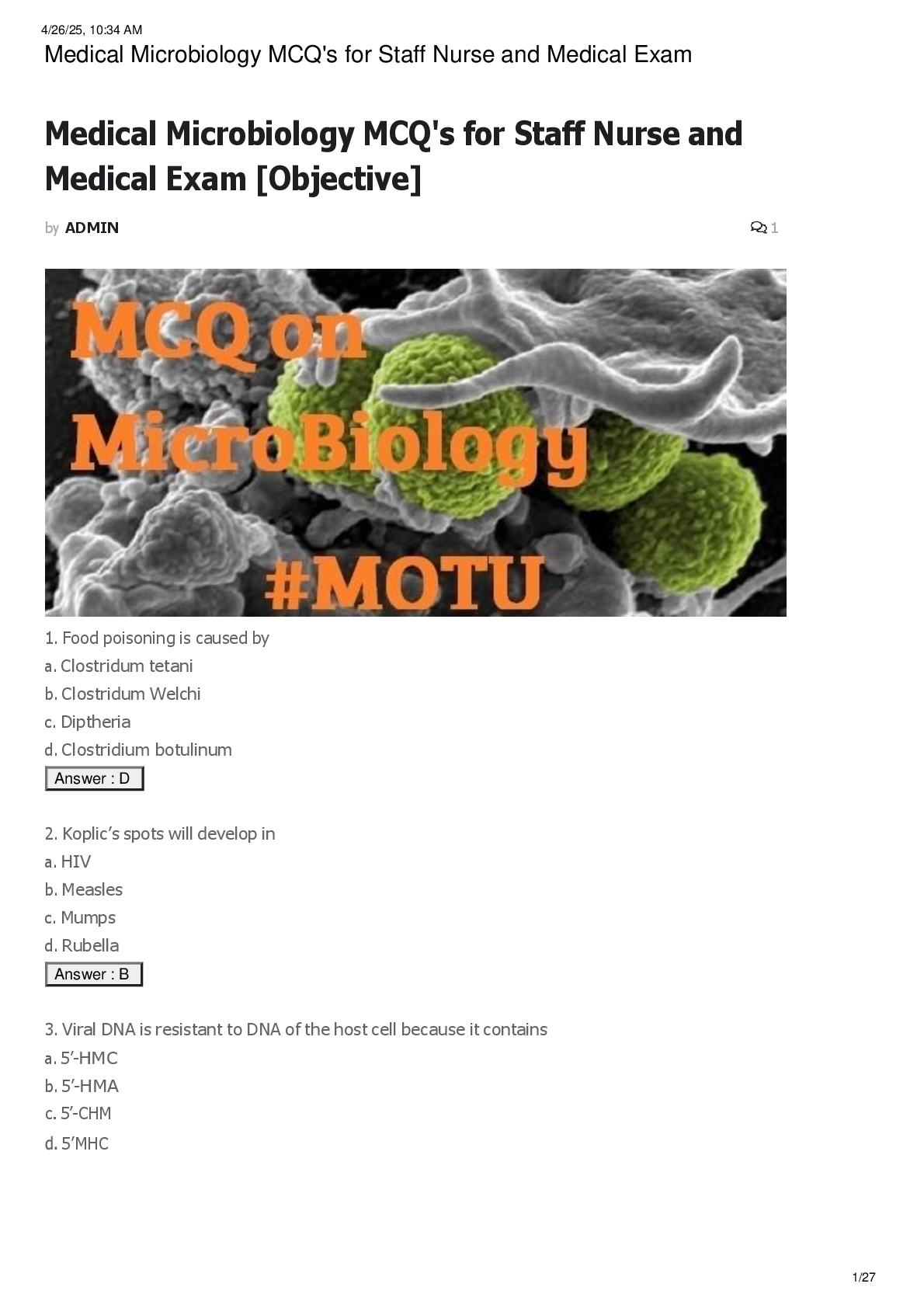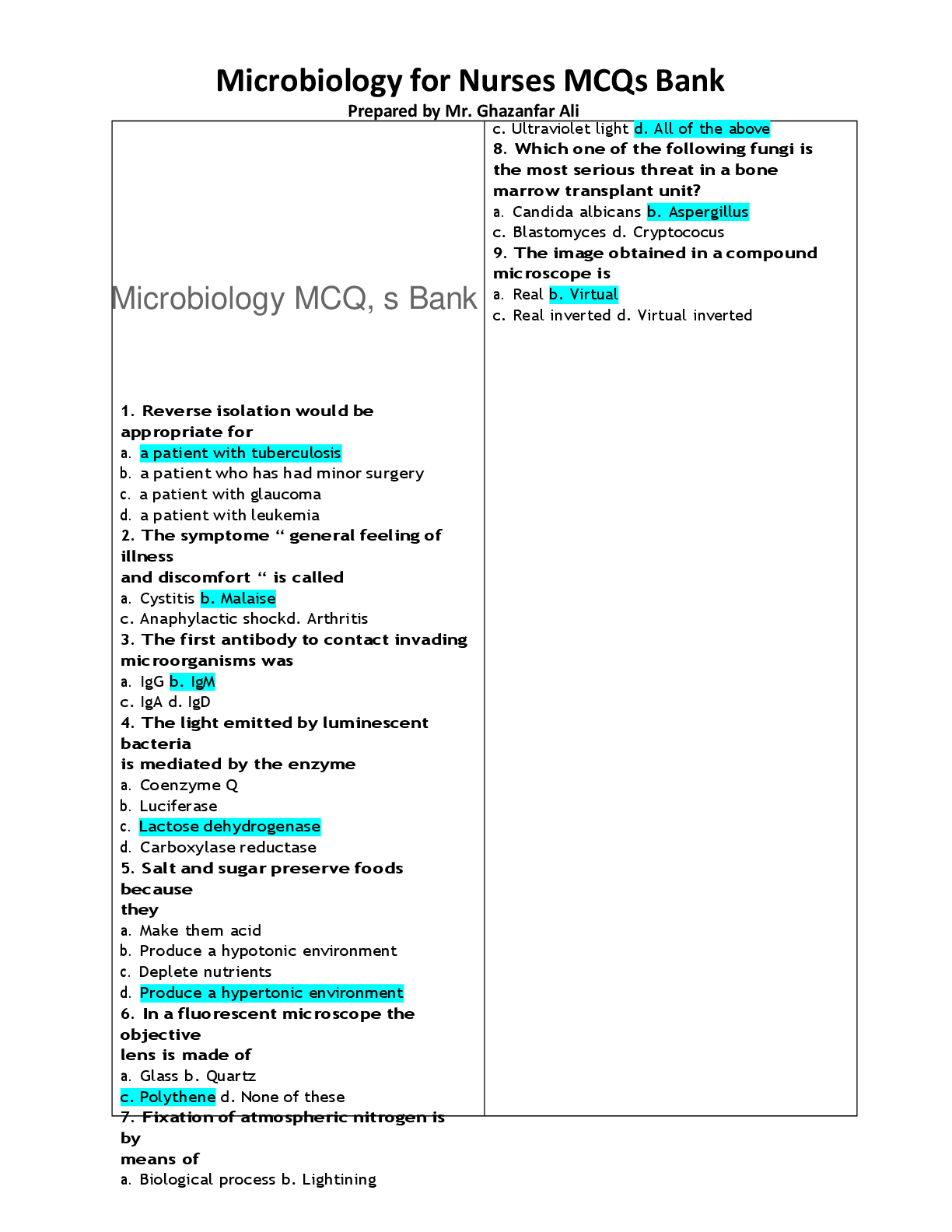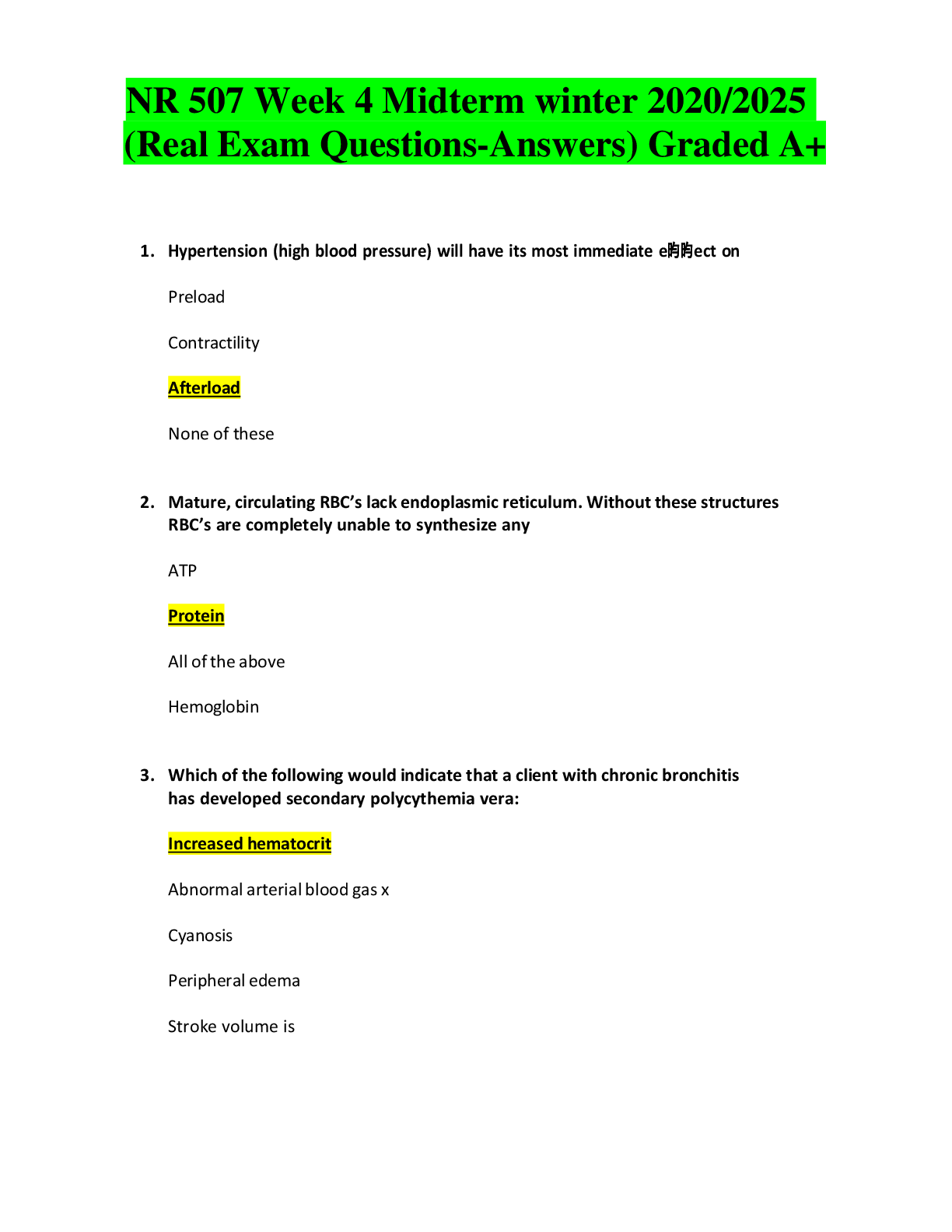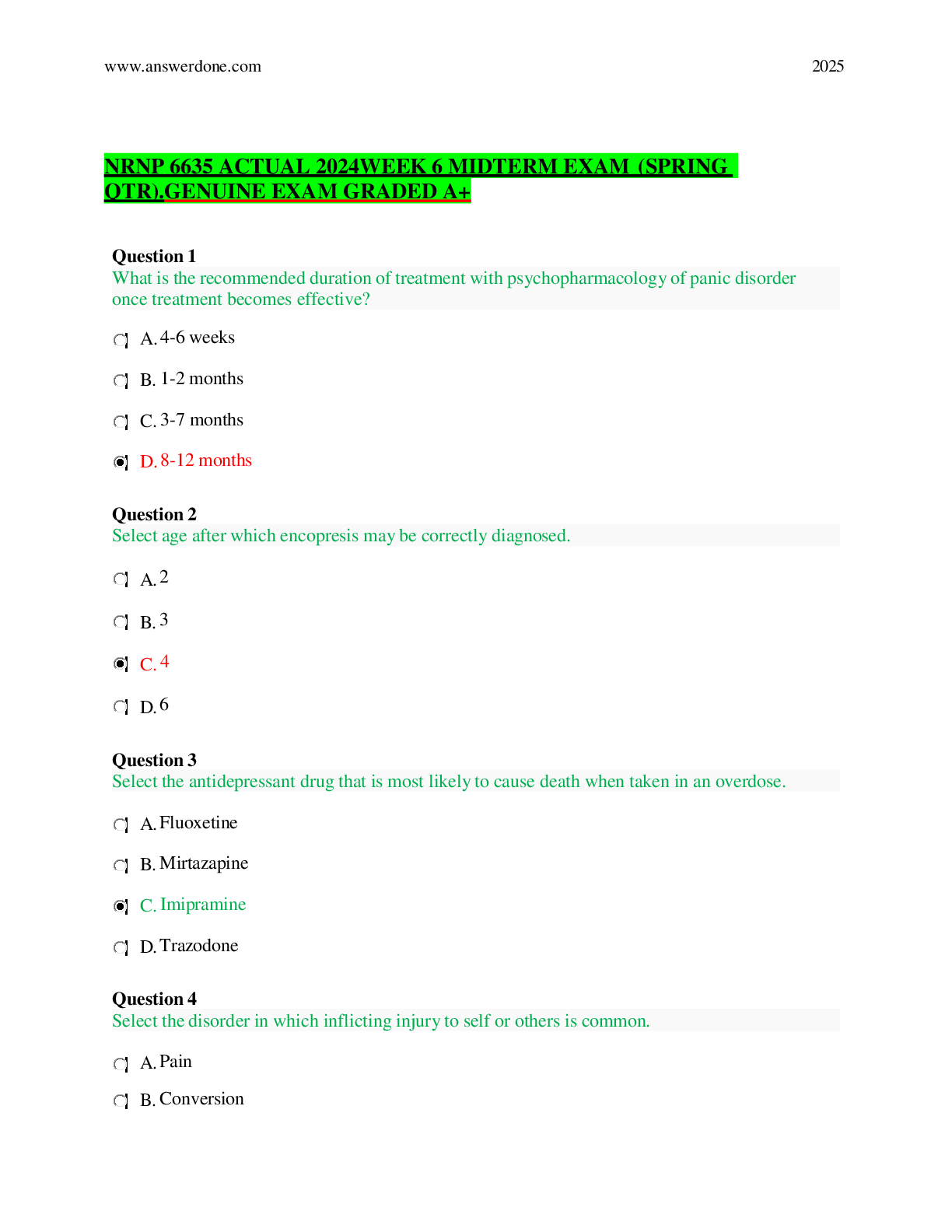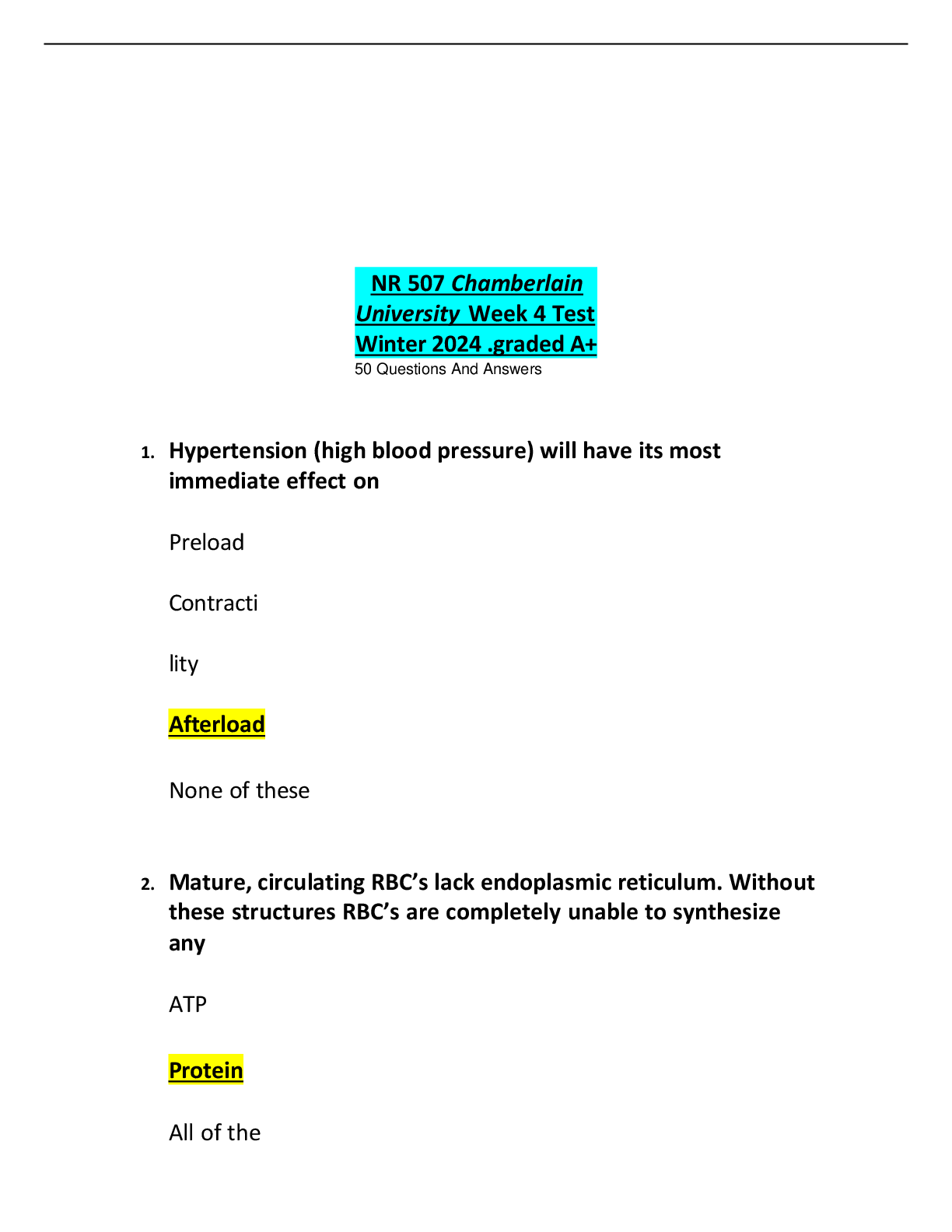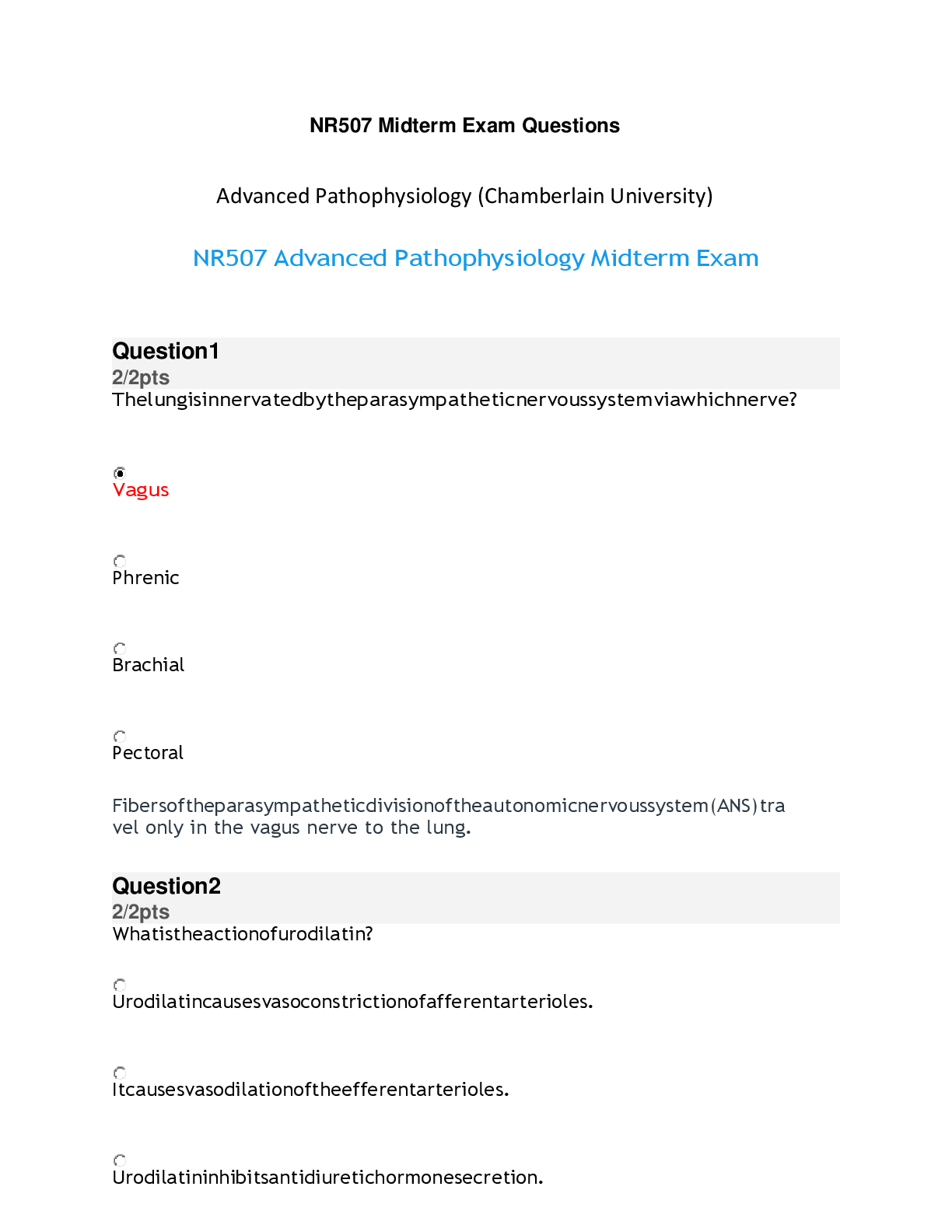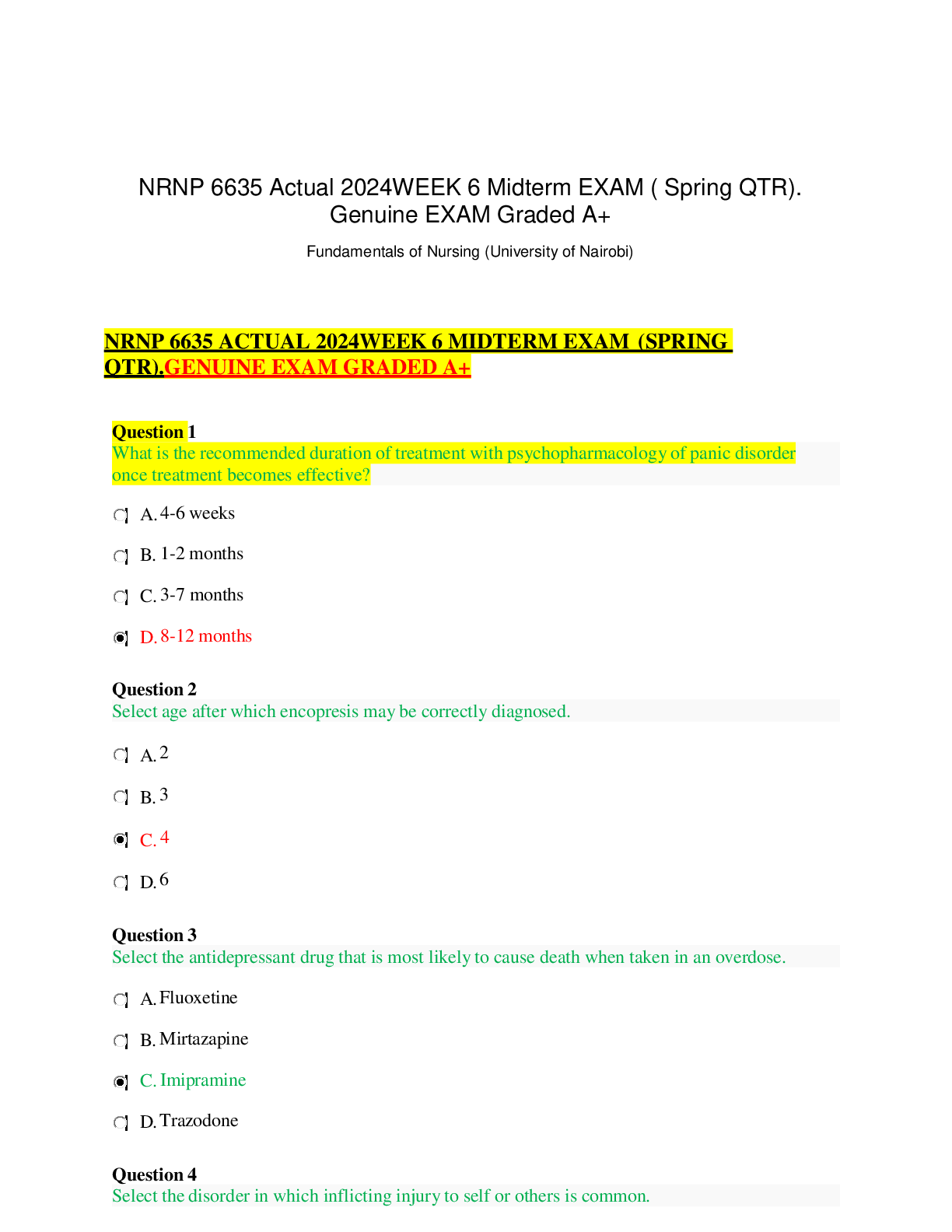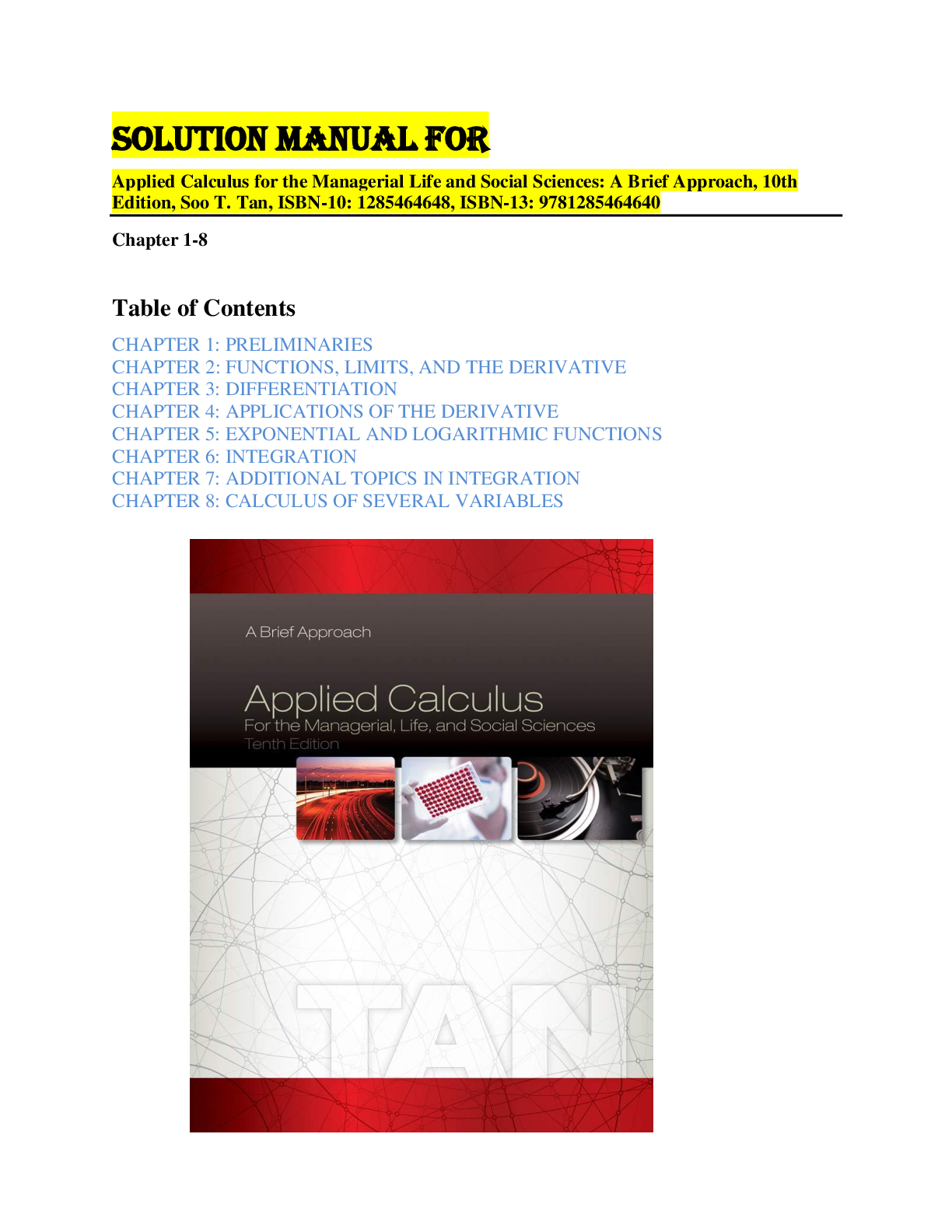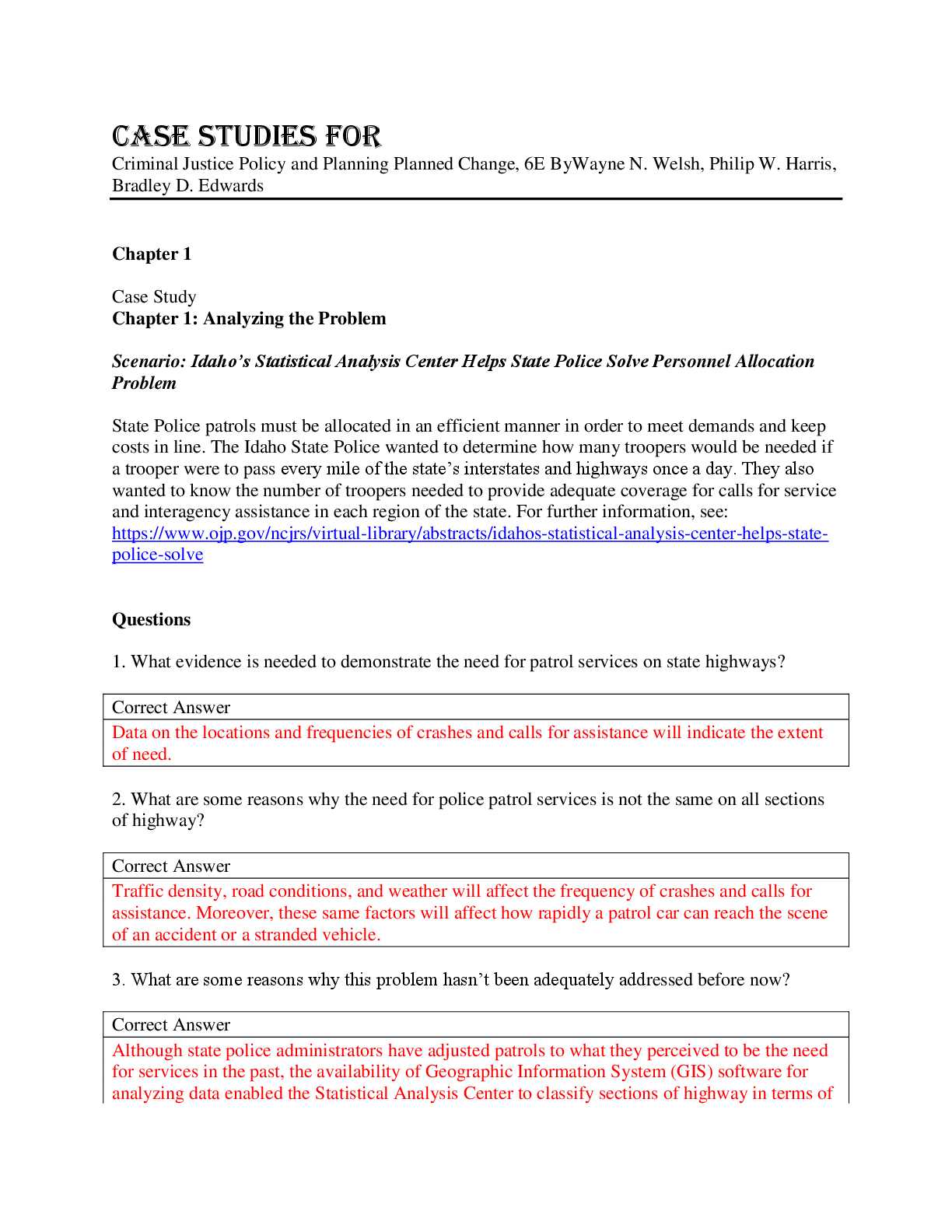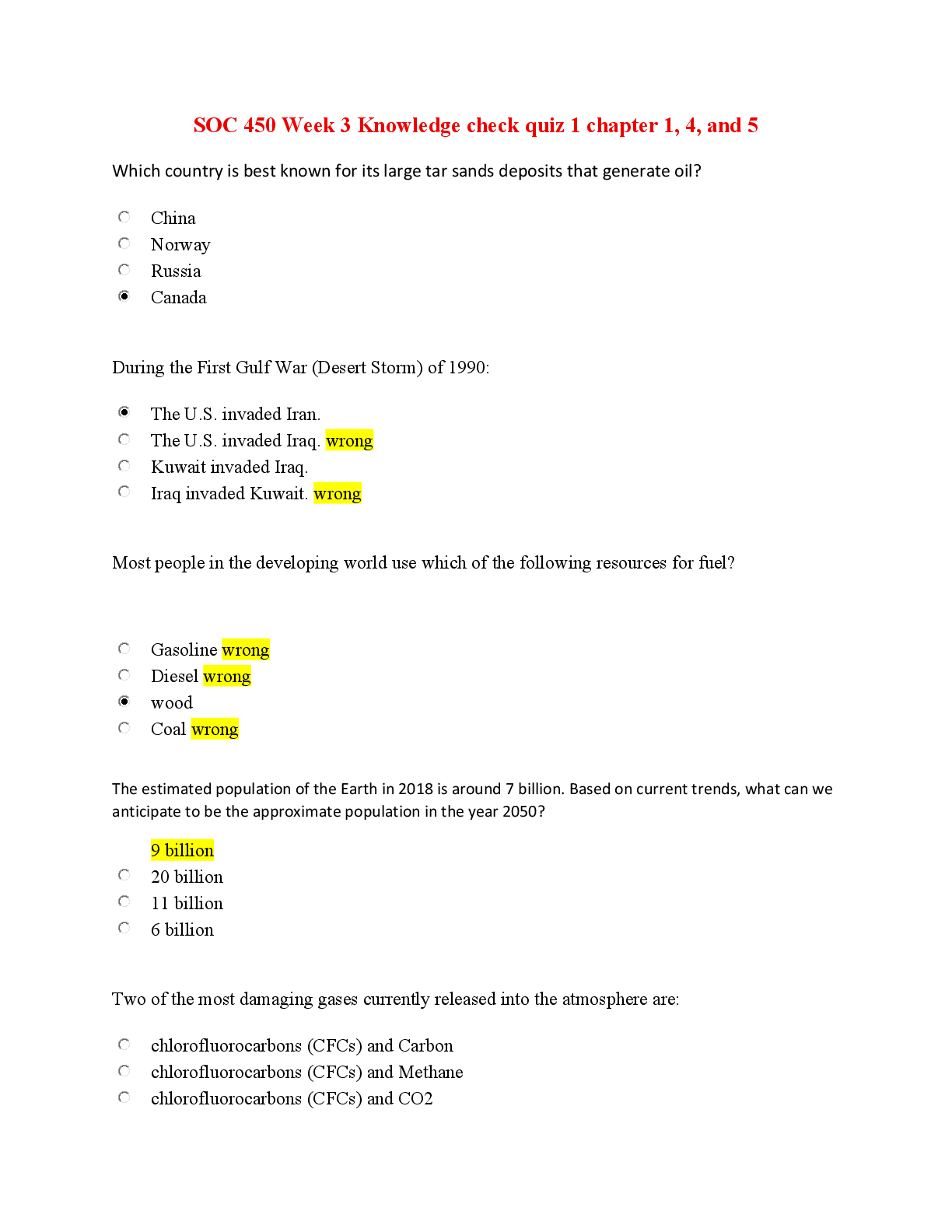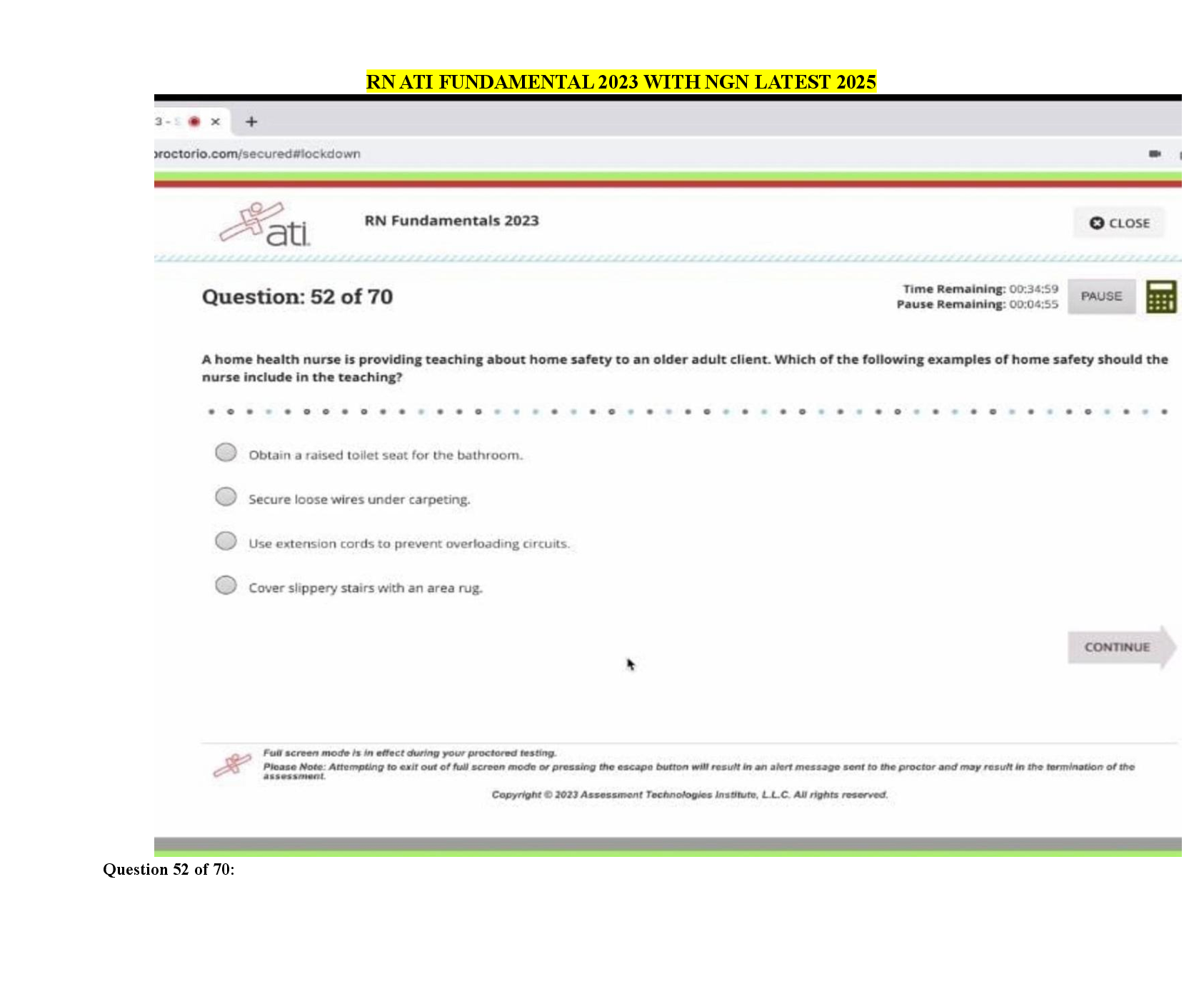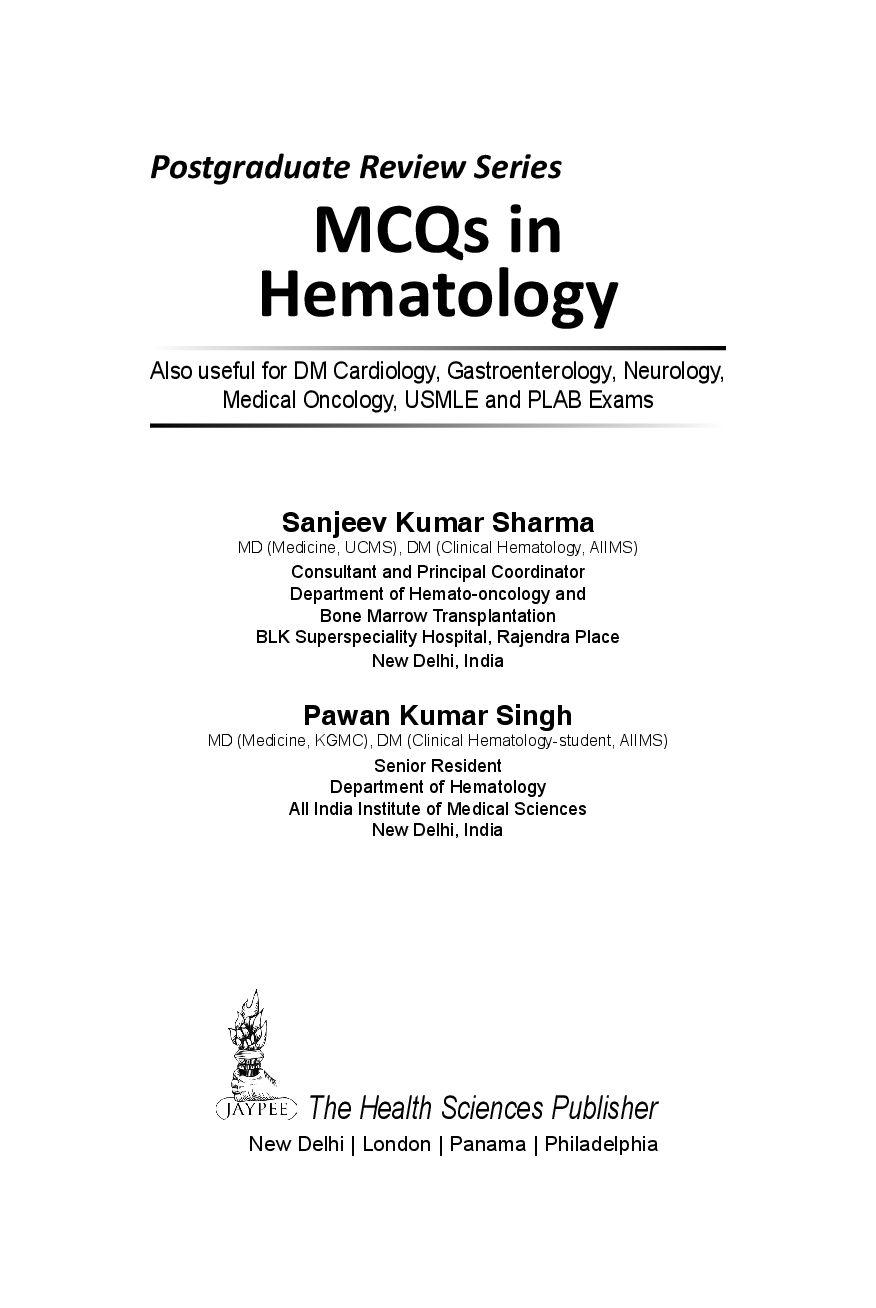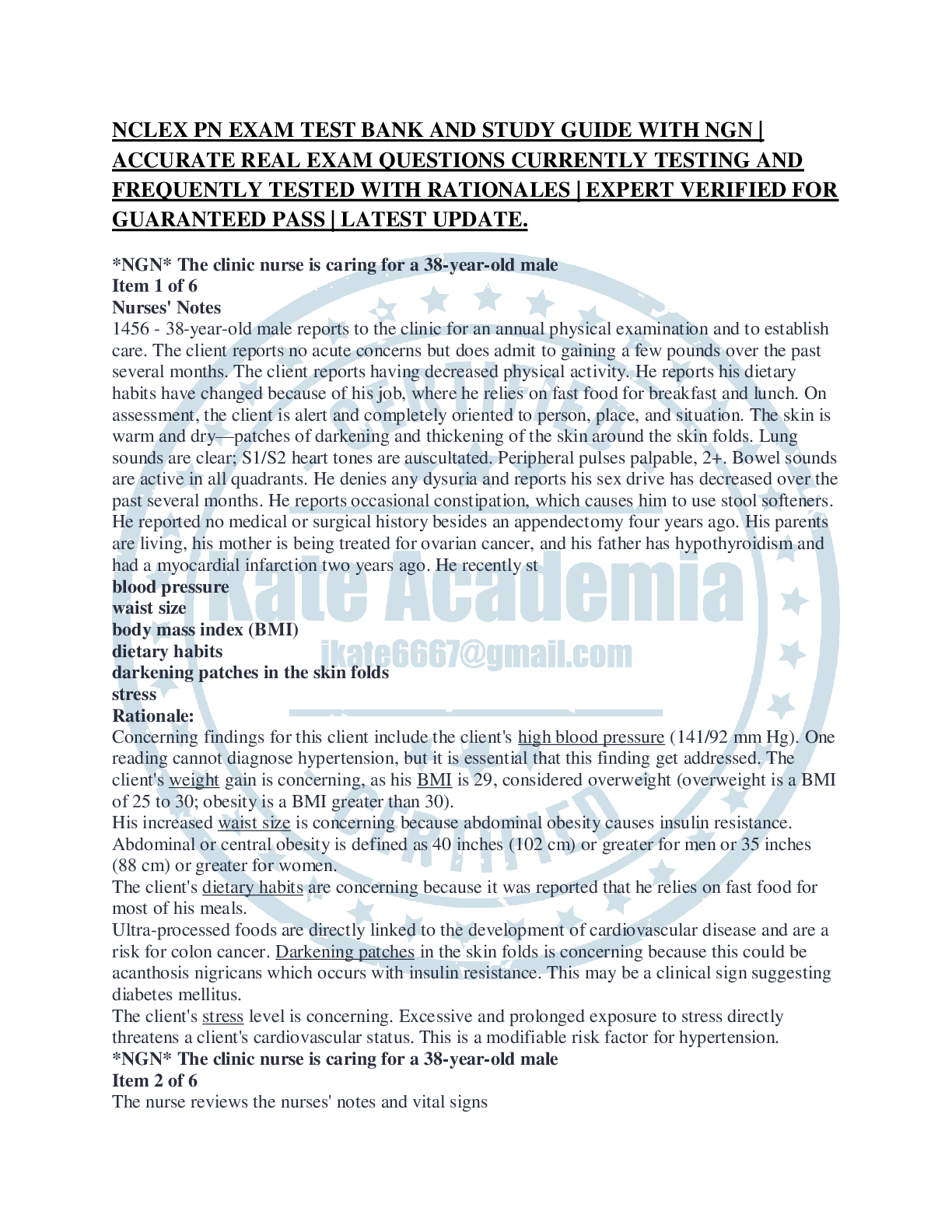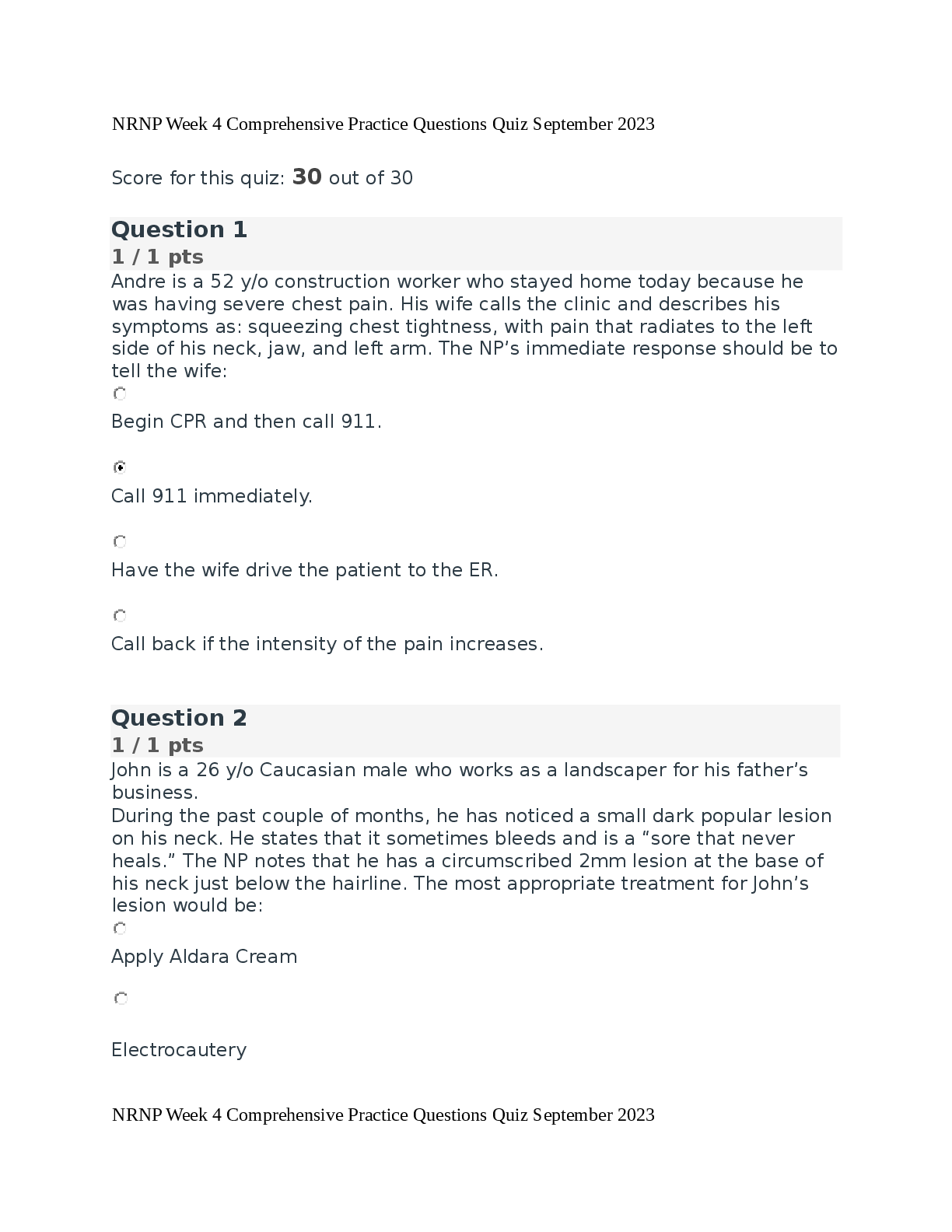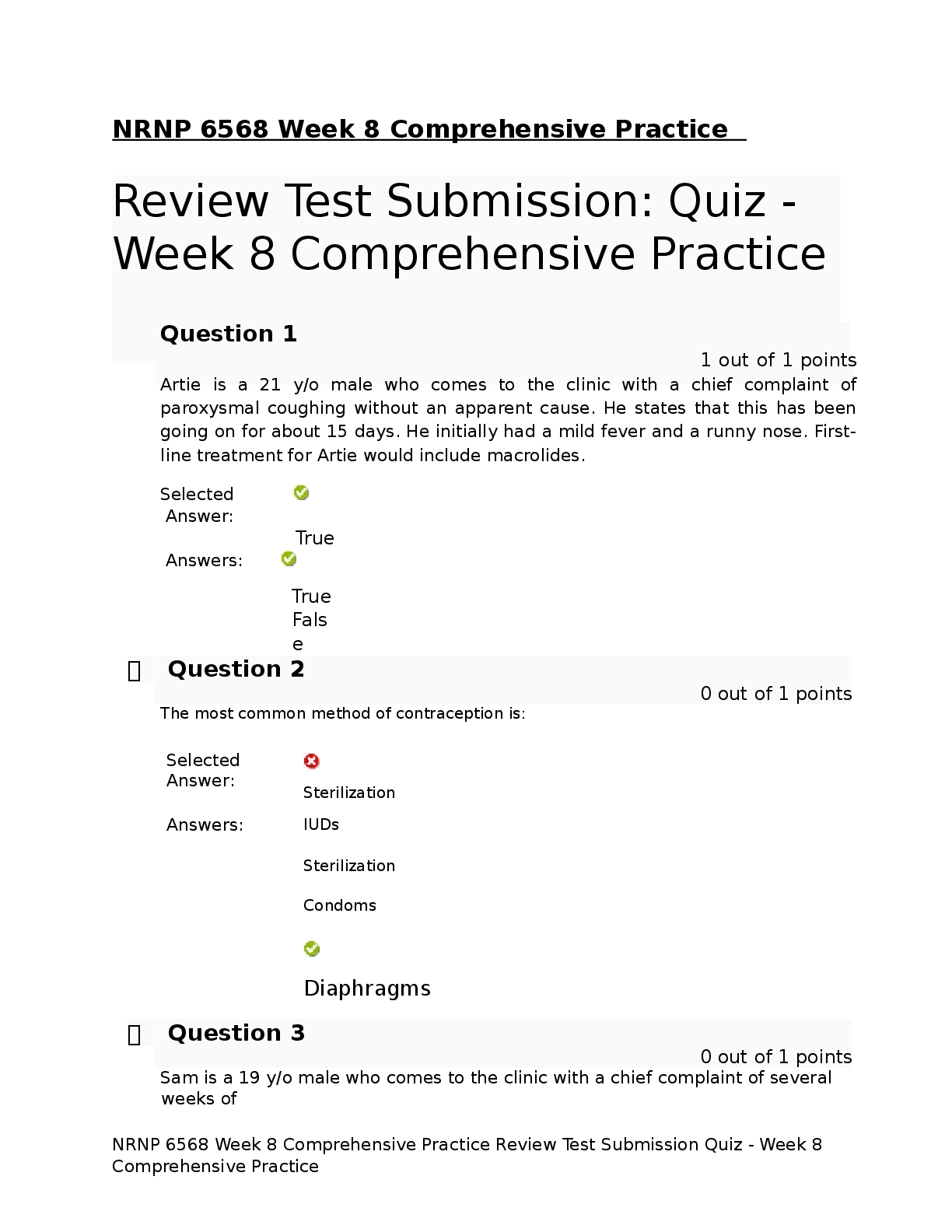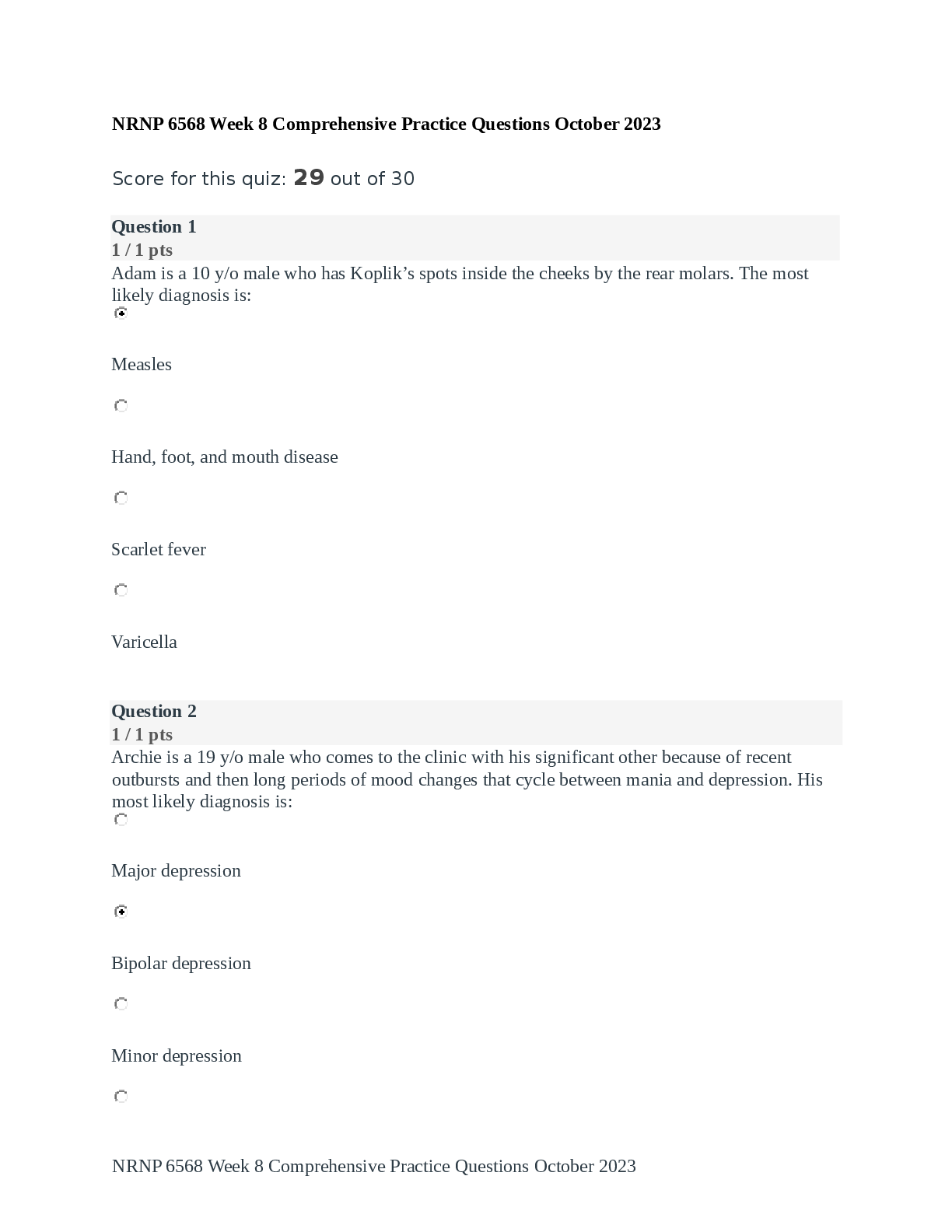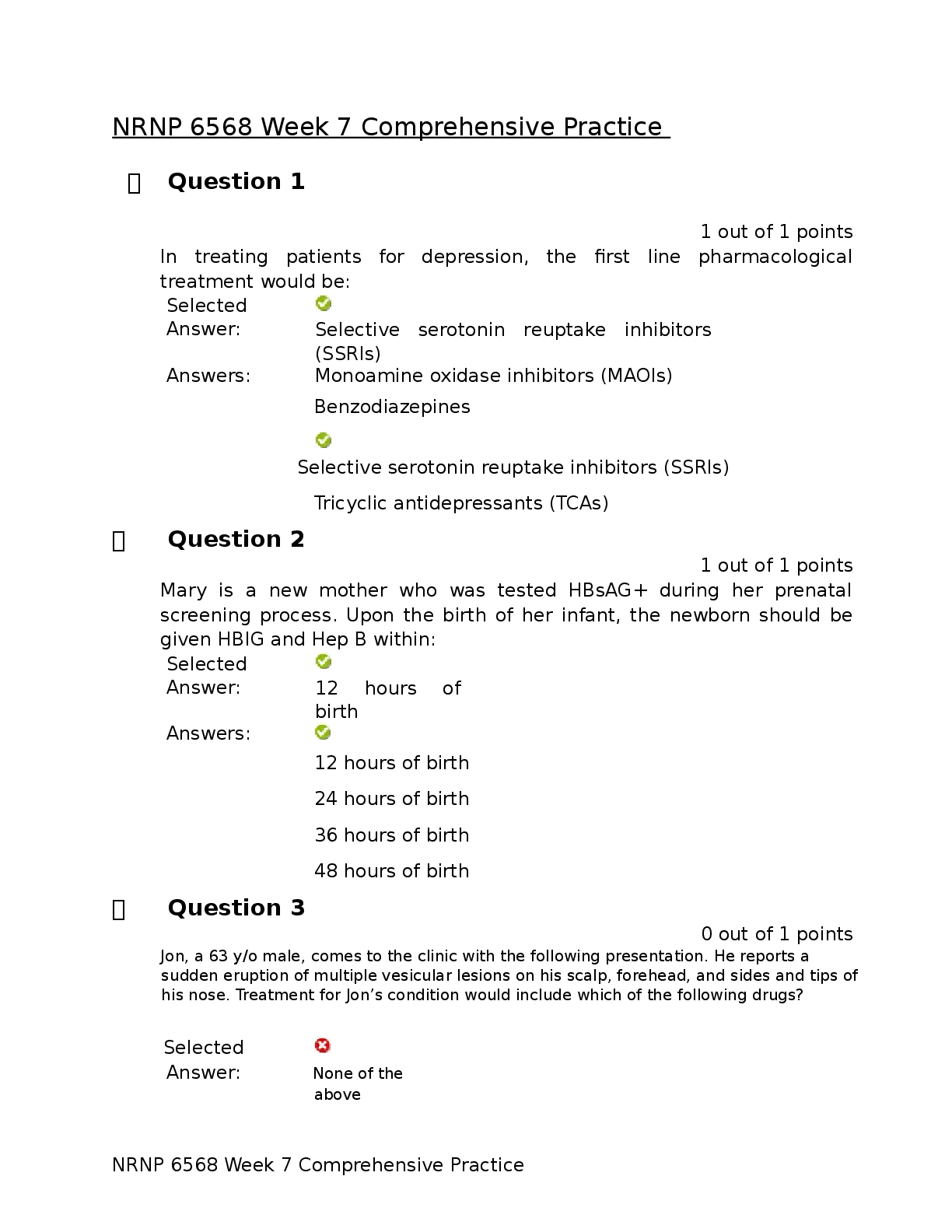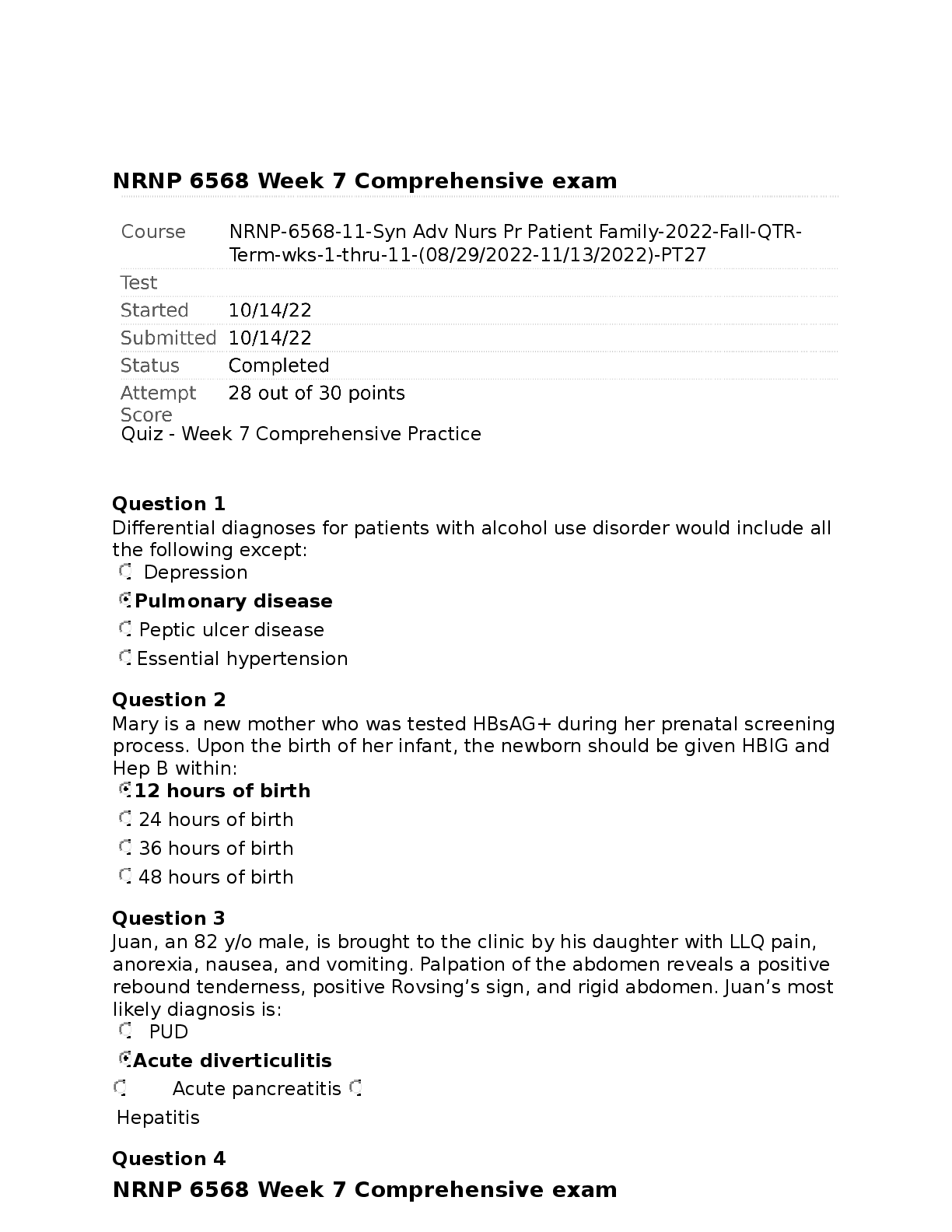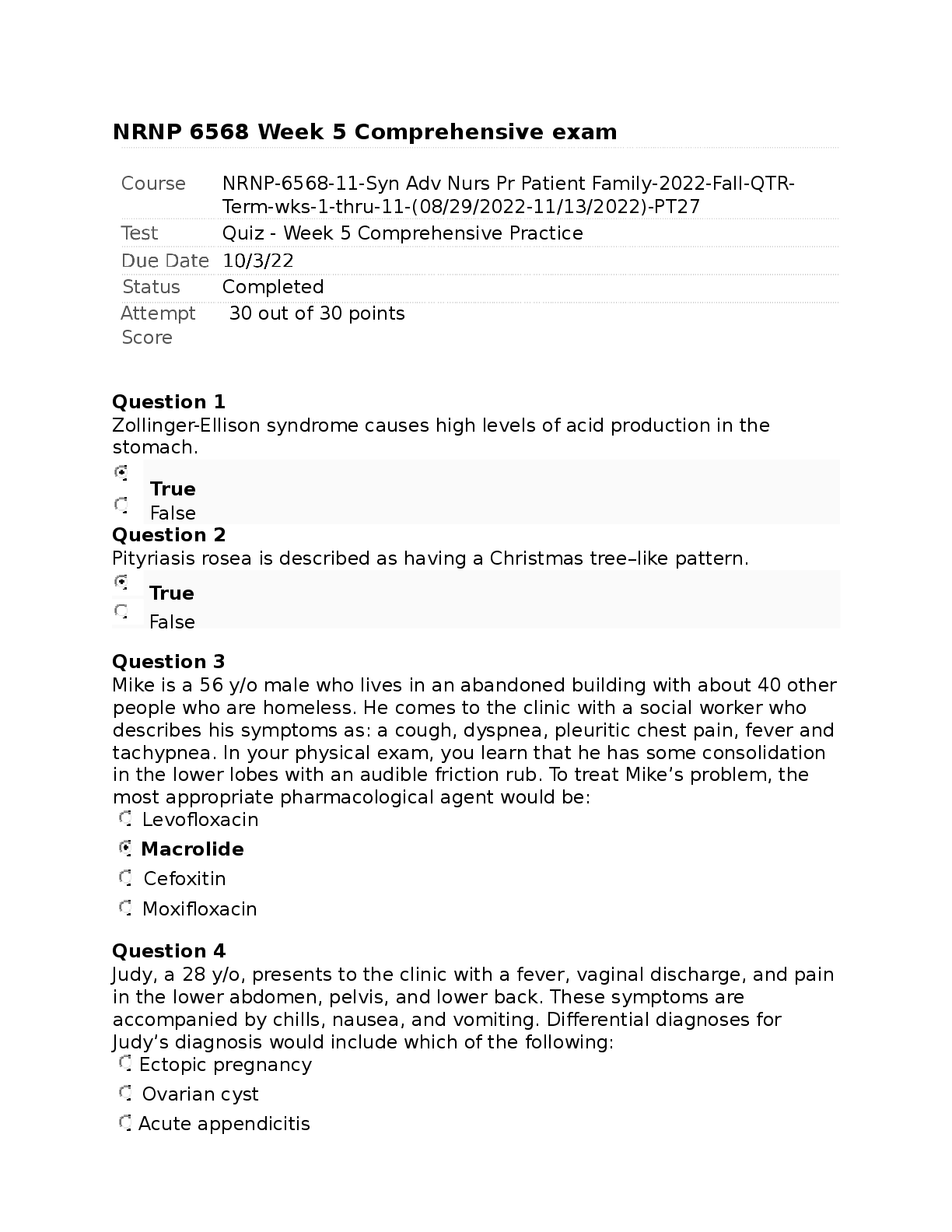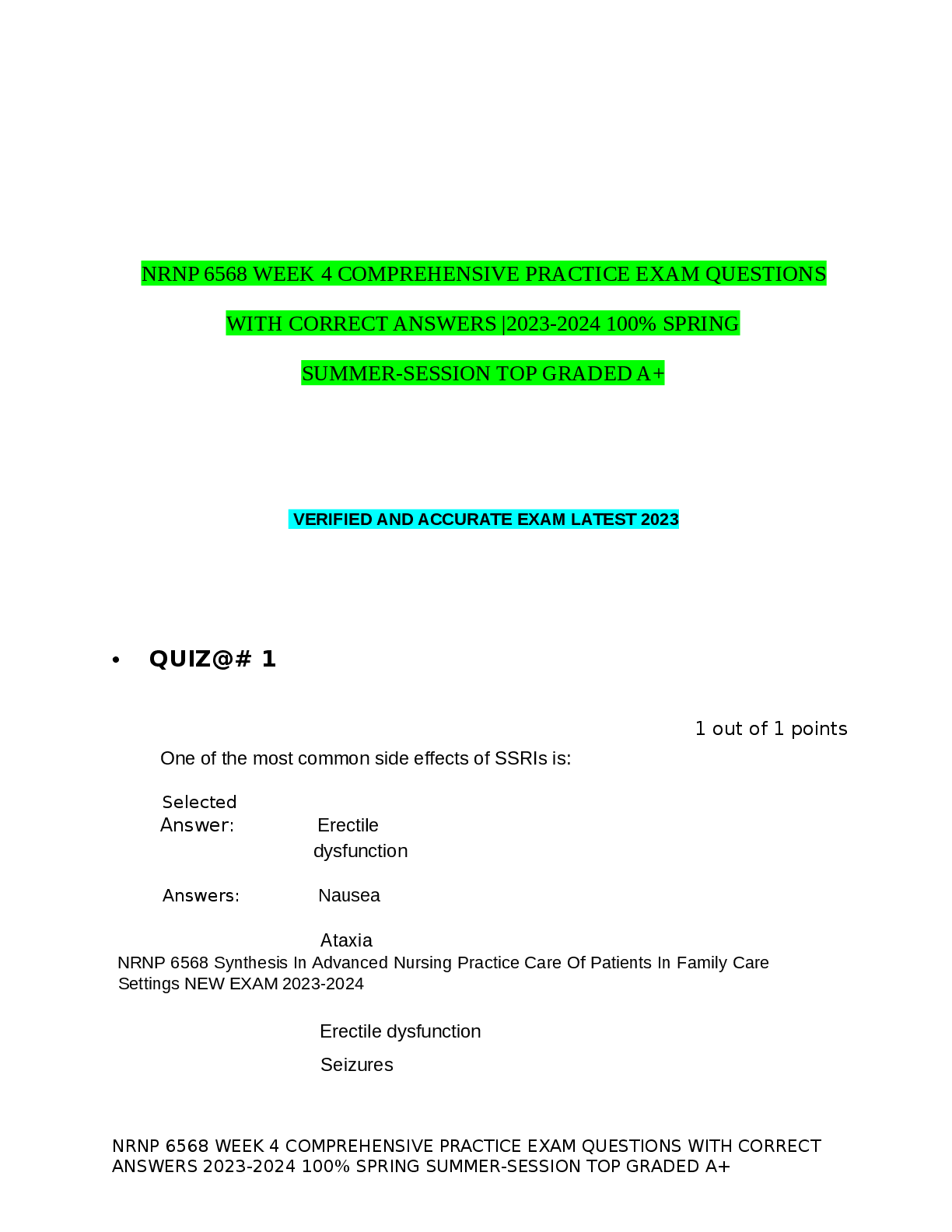Religious Studies > EXAMs > Liberty University CSTU 101 Quiz 7 (All)
Liberty University CSTU 101 Quiz 7
Document Content and Description Below
Liberty University CSTU 101 Quiz 7 · Question 1 3 out of 3 points In the Early Modern World, who said that the mind, at birth, was a complete blank, a tabula rasa (Lat., “blank sla ... te”). This contradicted royalists, clergymen, and others, who insisted that the natural inclination, at birth, was submission to authority. Locke · Question 2 3 out of 3 points From the Essay “Influence of Christianity on Western Culture”. Helped create what we now know as the Red Cross. Dunant. Answer Feedback: .Luther · Question 3 3 out of 3 points Who saw work as God-pleasing and a calling (Vocatio)? Luther · Question 4 0 out of 3 points In the Early Modern World who was considered the hero of the Enlightenment? Bacon · Question 5 3 out of 3 points Who wrote the Protestant Work Ethic and the Spirit of Capitalism? From the Essay “Influence of Christianity on Western Culture”. Weber · Question 6 0 out of 3 points According to the essay "Impact of the Protestant Reformation." Individuals reside in a defined culture that in most cases is _______________. Comfortable · Question 7 0 out of 3 points Once Pope Paul III realized the seriousness of Luther’s reformation, he assembled what Council? Rome · Question 8 3 out of 3 points Mary I is better remembered throughout history as “Bloody Mary,” because during her short five-year reign, she had almost 300 catholic dissenters burned at the stake, This action by the queen would result in a book being written by _____________called The Book of Martyrs. Foxe · Question 9 3 out of 3 points Who was the founder of the Jesuits, a group of Catholic responders to the Reformation. Loyola · Question 10 3 out of 3 points The ______________ were persecuted by the Church of England and authorities more than the Puritans because they sought to worship outside the realm of the Church, which was a direct challenge not only the Church of England, but also to Elizabeth I and later James I. Separatists · Question 11 3 out of 3 points In the Early Modern World, who felt that mathematics was the “queen of the sciences, and was all anyone needed to explain a mechanical universe? Descartes · Question 12 3 out of 3 points In the Early Modern World the “Age of Reason” and ____________________ are the two terms that describe the intellectual characteristics of the eighteenth century. Enlightenment · Question 13 3 out of 3 points According to the essay "Impact of the Protestant Reformation." The “freedom to worship gate” had been closed by the _______________ for centuries. Catholic Church · Question 14 3 out of 3 points According to the essay "Impact of the Protestant Reformation." The Protestant Reformation had given people in Europe a new vision of ____________. Freedom · Question 15 3 out of 3 points Which one of these individuals was not part of the Protestant Reformation? Copernican · Question 16 3 out of 3 points According to the essay "Impact of the Protestant Reformation." He opened the door to modern astronomy on his view of the Sun and Earth? Copernican · Question 17 3 out of 3 points The Reformer from the Protestant Reformation from Scotland? Knox · Question 18 0 out of 3 points Calvin’s view of __________ and government would lead to his belief that the sovereignty of God within his church should allow his disciples to guide the secular authorities in spiritual matters. Individual · Question 19 3 out of 3 points According to the essay "Impact of the Protestant Reformation." Once people saw the flaws of the church they begin to question the ____________as well. State · Question 20 3 out of 3 points At the beginning of the 17th century both England and France were governed by absolute monarchs who based their claims on _____________. Divine Right · Question 21 0 out of 2 points Immanuel Kant was a leading scientist of the Early Modern World. True · Question 22 2 out of 2 points One of the most important theological ideas of the Reformation is expressed by the phrase “sola scriptura.” True · Question 23 2 out of 2 points Christianity has had little impact on education in Western Culture. From the Essay “Influence of Christianity on Western Culture”. False · Question 24 2 out of 2 points Thomas Aquinas, a Protestant philosopher of the thirteenth century, had taught that the will of an individual was fallen after man revolted against God, but the mind was not. True · Question 25 2 out of 2 points The Protestant Reformation felt that education was not important and reading should be left up to church official only. False · Question 26 2 out of 2 points Henry the VIII broke away from the Catholic Church because of doctrinal issues. False · Question 27 2 out of 2 points The keystone of the revolt against the Church of Rome was the dazzling realization that people could live in a direct relation to God with no necessity for an intermediary. True · Question 28 2 out of 2 points The values of a culture will determine the behavior and actions of that culture, so to change the actions you must change governments. False · Question 29 2 out of 2 points John Milton wrote many poems critical of the Puritans. False · Question 30 2 out of 2 points From the Essay “Influence of Christianity on Western Culture”. Before Christ appeared, there was an extremely high status for Greek, Jewish, and Roman women. False [Show More]
Last updated: 3 years ago
Preview 1 out of 7 pages

Buy this document to get the full access instantly
Instant Download Access after purchase
Buy NowInstant download
We Accept:

Reviews( 0 )
$7.00
Can't find what you want? Try our AI powered Search
Document information
Connected school, study & course
About the document
Uploaded On
Mar 18, 2021
Number of pages
7
Written in
All
Additional information
This document has been written for:
Uploaded
Mar 18, 2021
Downloads
0
Views
55

